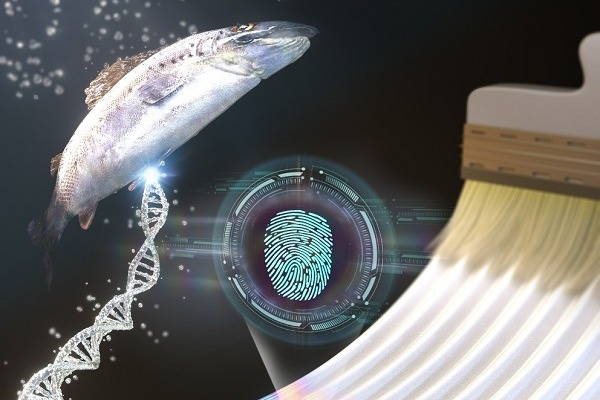The screen of the latest Samsung Electronics smartphone series Galaxy 23 released this year has a fingerprint recognition window on the display that uses physical unclonable function (PUF) technology.
PUF uses a one-way function without an inverse function to create a security pattern that cannot be duplicated or forged. Also useful in preventing counterfeiting of artworks, the technology is being developed in a range of forms.
Irregularities in fingerprints and zebra patterns are types of natural PUFs.
The Korea Advanced Institute of Science and Technology (KAIST) on Tuesday said its chemistry professor Yoon Dong-ki and Ph.D. student and researcher Park Geon-hyeong developed PUF source technology usable on artworks using salmon DNA.
The research team said "buckling instability" occurs when DNA extracted from salmon is dissolved in water and applied with a brush, resulting in numerous random patterns such as those of zebra stripes. Such instability refers to a phenomenon in which a thin structure is suddenly deformed or destroyed by a force.
In the random patterns appearing when buckling instability occurs, the fingerprint traits ridge ends and bifurcation points occur. The team confirmed these patterns through a polarized optical microscope and defined it by converting the digital bit to zero or one to produce "digital security ink."
Researchers then swept the substrate with a brush that evenly applied this ink, with the volume of bits reaching 150 squares of 10 in a space measuring about 100 micrometers in width and length on the substrate.
"This study produced a security pattern that acts like a fingerprint by utilizing the randomness that appears in the self-assembly of soft materials," a team source said. "This finding is expected to be the cornerstone of the development of security technology impervious to quantum computers."
The results of this study, which is supported by the National Research Foundation of Korea under the Ministry of Science and ICT, were published in the international scientific journal Advanced Materials.
Write to Hae-Sung Lee at
ihs@hankyung.com






